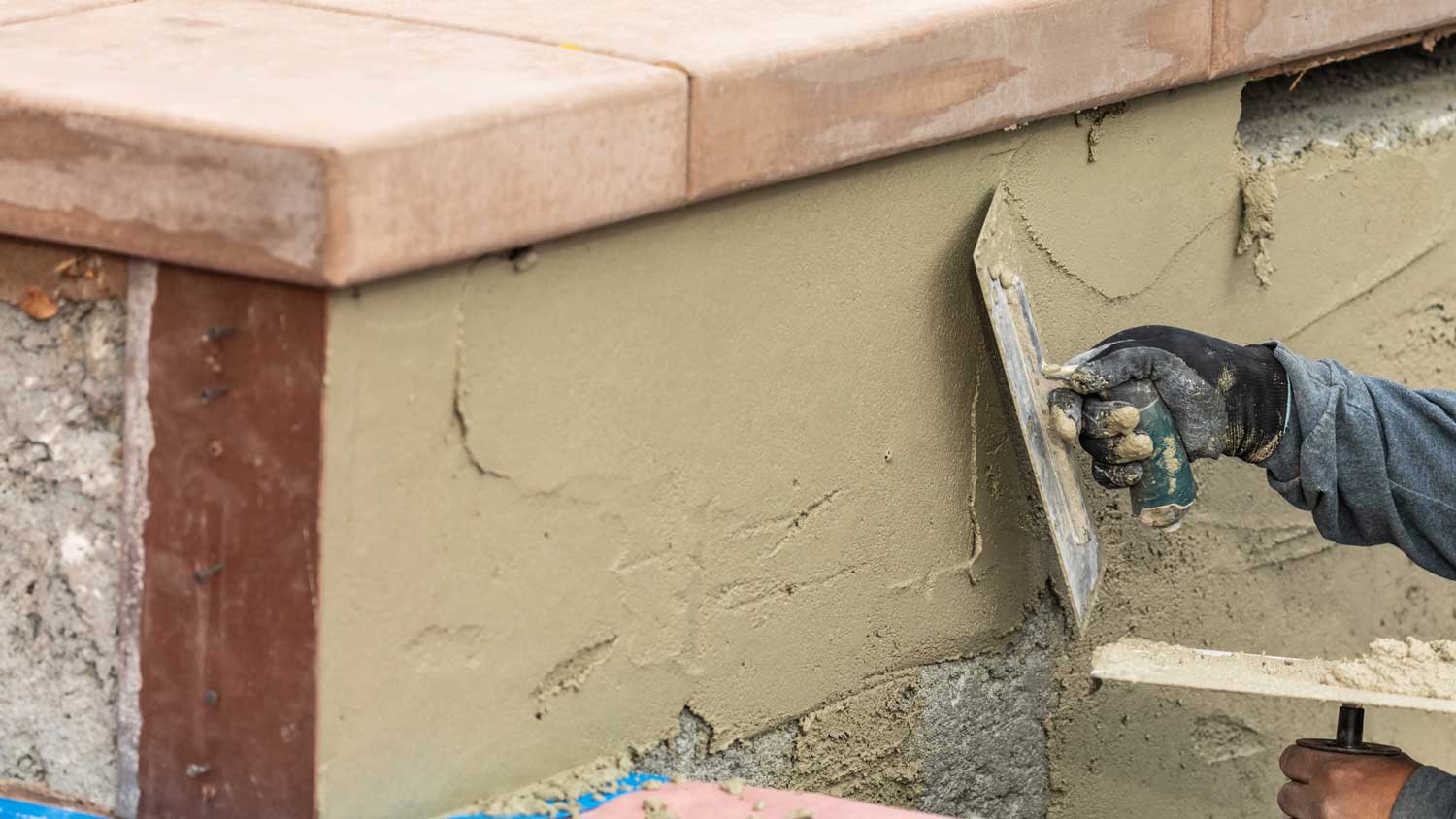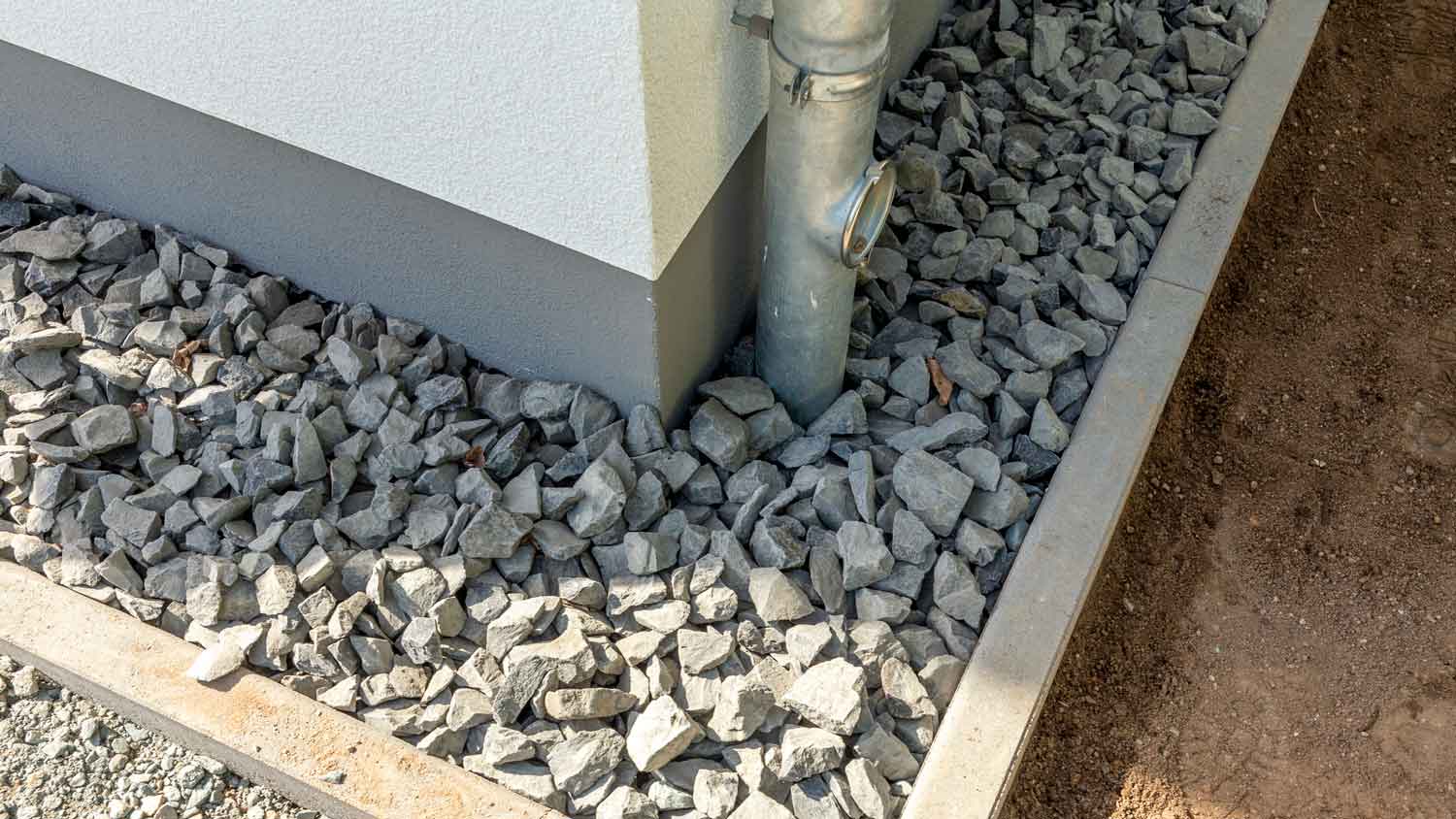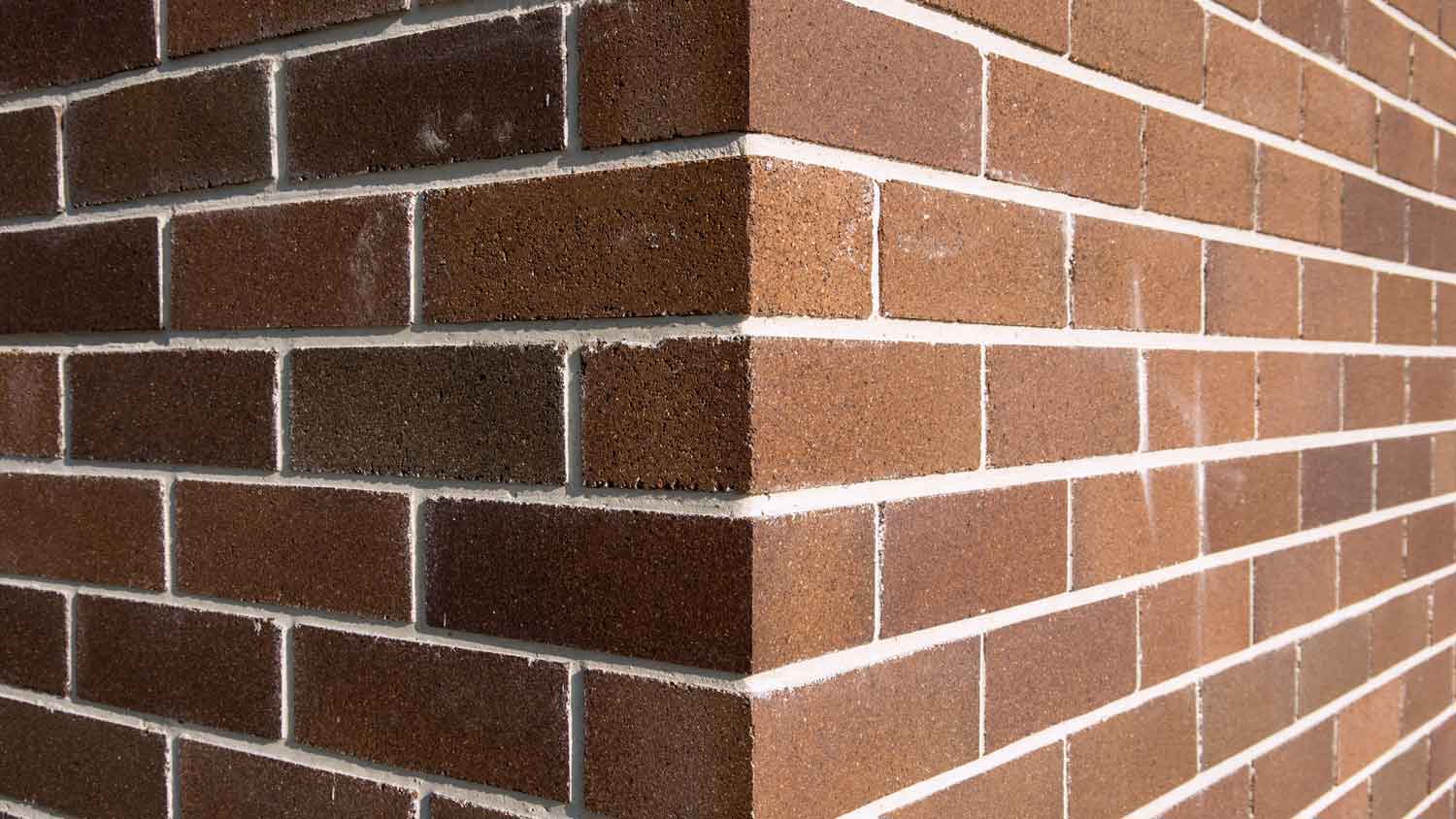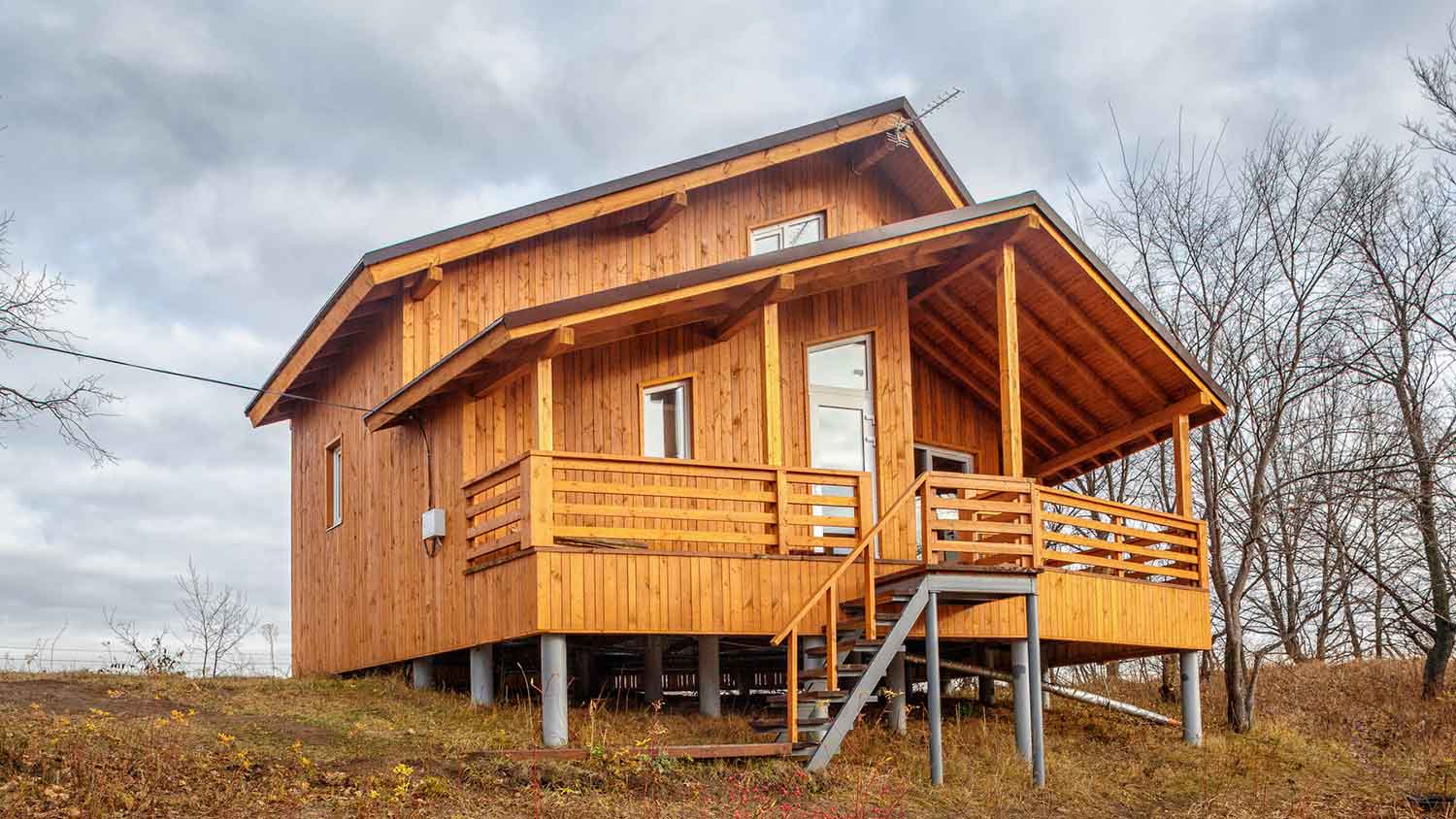10 Foundation Refacing Tips to Boost Your Curb Appeal
Give your foundation some pampering


When it comes to people, many say it’s what’s on the inside that matters most. And in the case of houses, its stability is on the same level of importance. But while a home’s structural foundation may be doing a great job at keeping it stable, it’s not always the prettiest thing to look at.
If you’re looking for a creative way to cover up the drabness of exposed foundation, check out these 10 foundation refacing tips that are sure to make your neighbors’ heads turn.
What is Foundation Refacing?
Foundation refacing refers to covering the exposed foundation of your home with various materials, landscaping, or exterior decor. This is something people tend to do if they have a raised foundation.
These foundation refacing ideas vary in cost, DIY-ability, and the overall look they’ll give to your home.
1. Plant Flowers and Hedges
Plants add beautiful pops of color and fullness to any front yard. Large ones like hedges, hydrangeas, rose bushes, hostas, and vines are especially great for foundation refacing as they grow wide and can cover up the not-so-beautiful foundation.
It’s important to keep in mind that different foundation types have different needs in terms of maintenance, just as different plants have different growth patterns that could impact your foundation.
When you’re deciding on the best approach to foundation planting, consider consulting a professional landscaper so you can take the best approach.
2. Cover With Stucco

Stucco is a great option for foundation refacing as it provides a unique, textured look. While stucco may have already seen its heyday in terms of interior design, using it on the exterior of your house is a timeless style that proves to be durable. Plus, you can also apply tint to your stucco if you want it to be a certain color that better matches your home.
While it is possible to cover the foundation with stucco on your own, it is a time consuming and challenging process, so make sure you’re well versed in how to apply stucco if you decide to DIY.
3. Cover With Latticework
Using lattice to cover foundation is a good lightweight option that adds a homey feel to any house’s exterior.
Latticework consists of small pieces of wood weaved together and can be done in virtually any color if you decide to paint it on your own.
The lattice can either be secured to the ground or leaned up against the foundation depending on your preference. Latticework also lends itself well to climbing plants if you really want to spruce up the look of your yard when you’re refacing foundation.
4. Paint It
Painting might be the most expected solution for concealing a rough foundation, but it does require some thought beforehand. Along with making sure the color you choose matches your home’s exterior, you’ll need to make sure the paint you purchase is suitable for use outdoors.
Foundation painting is a great way to get creative with your home and it's budget-friendly, making it a great DIY project.
5. Make a Border with Rocks or Gravel

Making a border around your home’s foundation with rocks, stones, or gravel is a great way to make a uniform design around your home.
There are many colors and types of rocks and stones so you have lots of room to be creative and find something that matches your house best.
This method of foundation refacing is budget-friendly and easy to maintain—perfect for a DIY project.
6. Cover with Stone Veneer
Stone veneer panels are both an attractive and useful option for refacing foundation. The panels themselves provide a sleek, clean look and come in different colors so you can choose what matches your home.
They’re also easy to clean and maintain, last long, and can actually help insulate your house. Because they hold thermal mass, they can retain and slowly release heat. This adds an added bonus of energy efficiency and could cut down on your energy bill.
7. Apply Steel Sheets
Steel sheets are trimmable pieces of metal that can protect your foundation. Because they’re trimmable—and easy to install— they make a great choice for DIY foundation refacing. The material is resilient, so it can withstand tough weather conditions.
8. Use Bricks

Bricks are a popular option to cover exposed foundations. They’re durable, affordable, and have a classic look available in different colors and sizes depending on your preference. This is another option that is very doable as a DIY project as long as you practice safety with any heavy lifting.
9. Add an Outdoor Sculpture
While this idea may need to be used in conjunction with other methods for foundation refacing, it’s a unique way to add something different to your home’s exterior and cover up foundation at the same time.
Try to find outdoor sculptures or other decorative objects that are weather-resistant and suit you and your home’s style. It’ll give your foundation some unique personality.
10. Make Sure Your Foundation is in Good Shape
Quite possibly the most important part of refacing your foundation is to make sure your foundation is stable in the first place.
Before you move on to the cosmetic aspect of your foundation, consider having it inspected or take note of any potential issues yourself. The cost of foundation repair might be more than covering it up, but it’s an important first step if it's needed.
Get quotes for foundation repair options near you so you can find the best professional to get the job done and move on to making things pretty.
Frequently Asked Questions
The cheapest way to hide foundations is to literally hide them. While some methods of foundation refacing are a little more involved, things like adding hedges or paint to cover up exposed foundation will come out cheaper.
If you decide to fill the space around your home’s foundation with landscaping materials, it’s important to consider the aesthetic as well as technical factors like drainage and protection from pests and the elements. Materials such as gravel, rubber mulch, concrete, and brick masonry are all good options.
It’s best practice to paint your house foundation a neutral color that will match well with the home, look nice on a seasonal basis, and be attractive to future homebuyers. However, if a more eccentric color is what complements the home as a whole there’s no reason not to take that approach.





- 11 Warning Signs of Foundation Issues
- What a Foundation Inspection Is and How to Check Yours
- Your Guide to Dealing With Foundation Drain Issues
- 11 Foundation Maintenance Tips to Keep Your Home Standing Strong
- 10 Reasons You Really Shouldn't Delay Foundation Repairs
- 6 Sinking Foundation Signs and What to Do Next
- Who to Call to Repair Foundation Issues
- 8 Tips to Avoid Foundation Repairs
- 7 Tips for Protecting Your Home’s Foundation
- Should You Water Your Foundation?










